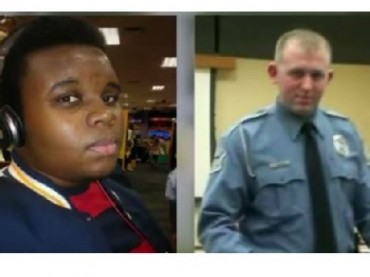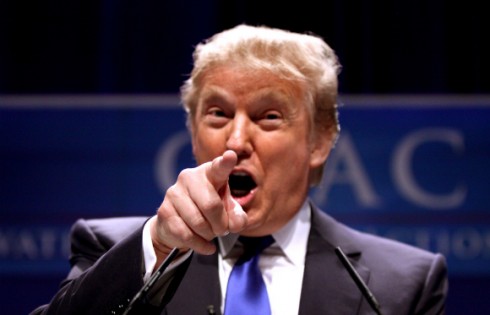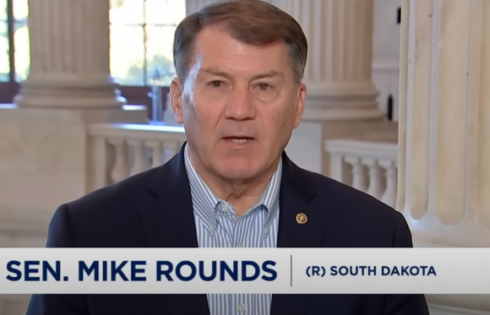
Claims of new findings and accusations of bias abound
The closed case against officer Darren Wilson took on new life this week, with legal scholars arguing there is enough evidence to appoint a special prosecutor and convene a new grand jury to probe the shooting death of Michael Brown.
Richard Kuhns, professor of law emeritus at Washington University School of Law in St. Louis who is described as an “expert on evidence and criminal procedure” on his faculty profile, said he believes the grand jurors that heard the case had a “pro-police bias” that should have disqualified them from presiding over the probe.
Kuhns detailed his views in an op-ed in The St. Louis American recently, and reiterated them in an email this week to The College Fix.
“There is even more reason now for a special prosecutor and new grand jury than there was when I wrote about the Wilson grand jury’s pro-police bias,” Kuhns said in his email. “[St. Louis County Prosecutor] Robert McCulloch has recently admitted that he knowingly presented perjured testimony to the grand jury – the testimony of the woman with acknowledged memory problems who implausibly claimed to have been at the scene and to have seen Michael Brown rush toward Officer Wilson.”
The professor’s comments come as pressure grows on Missouri leaders to appoint a special prosecutor, something of a rallying cry in the region and across the nation.
The NAACP Legal Defense and Educational Fund sent an open letter to St. Louis County Circuit Judge Maura McShane this week that alleges McCulloch engaged in misconduct and that the “grand jury process relating to Darren Wilson’s deadly actions was fatally compromised.”
A petition on MoveOn.org also calls for a special prosecutor to be appointed. It had nearly 120,000 signatures as of Jan. 6.
Also earlier this week, a Ferguson grand juror made national headlines for suing McCulloch. That person, identified as “Grand Juror Doe,” seeks to lift a gag order that prohibits the juror from talking about their experiences adjudicating the Michael Brown case.
“In the suit, the juror contends that ‘the investigation of Wilson had a stronger focus on the victim (Brown) than in other cases presented to the grand jury,’” reports USA Today. “The juror also states in the lawsuit that explanation of the law was made in a ‘muddled and untimely manner’ compared with other cases that were presented to the grand jurors, who began their service in May.”
Wilson shot the unarmed Brown, 18, at least six times after a confrontation in the St. Louis suburb of Ferguson on Aug. 9. Wilson told the grand jury Brown attacked him and he feared for his life.
The grand jury’s decision to find officer Wilson innocent of wrongdoing sparked massive protests across the nation, including at many campuses, and has led to a tense and ongoing debate on race relations and police brutality in America.
Criticism of McCulloch’s job performance handling the grand jury probe has yet to abate.
“Gov. Jay Nixon, a Democrat, faced criticism for declining to replace McCulloch, whose police officer father was fatally shot in the line of duty, with a special prosecutor to oversee the case,” USA Today reports. “Some activists have also charged that McCulloch presented evidence in a way to ensure that the jury would not return an indictment.”
Kuhns said he agrees with that assessment.
In his mid-December op-ed, he argued that “transcripts released by McCulloch’s office demonstrate that his prosecutors contributed to a likely pro-police bias by the manner in which they questioned witnesses. In contrast to their treatment of some witnesses whose stories the prosecutors vigorously challenged, the prosecutors were extremely deferential to police officers, including Darren Wilson.”
Kuhns told The Fix he believes a special prosecutor should question potential jurors about police bias and excuse any members that might exhibit such bias.
“Since McCulloch was unwilling to have his office seek an indictment, the pro-police bias issue could have been substantially mitigated by the appointment of a special prosecutor and a new grand jury to hear the Wilson case,” the professor wrote in his op-ed. “Those options still remain. It is important to restore both fairness and the appearance of fairness to the grand jury process. It is time to act.”
College Fix reporter Nathan Rubbelke is a student at Saint Louis University.
Like The College Fix on Facebook / Follow us on Twitter
IMAGE: YouTube screenshot





Please join the conversation about our stories on Facebook, Twitter, Instagram, Reddit, MeWe, Rumble, Gab, Minds and Gettr.